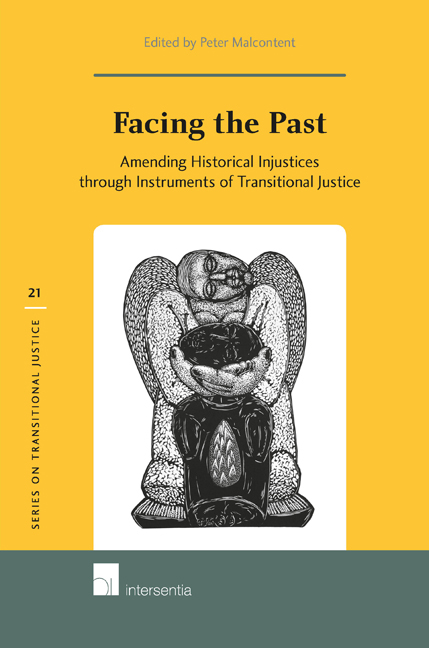Book contents
- Frontmatter
- Acknowledgements
- Contents
- PART I TRANSITIONAL JUSTICE. WHAT'S IN THE NAME?
- PART II RETRIBUTIVE JUSTICE
- PART III RESTORATIVE JUSTICE
- PART IV PENDING CASES
- The Unfulfilled Promise of Protection. The Netherlands and Srebrenica
- Facing the Armenian Genocide. A History of Denial and Politics
- The United States and Torture. The Politics of Transitional Ju
- Author Information
The United States and Torture. The Politics of Transitional Ju
from PART IV - PENDING CASES
Published online by Cambridge University Press: 15 December 2017
- Frontmatter
- Acknowledgements
- Contents
- PART I TRANSITIONAL JUSTICE. WHAT'S IN THE NAME?
- PART II RETRIBUTIVE JUSTICE
- PART III RESTORATIVE JUSTICE
- PART IV PENDING CASES
- The Unfulfilled Promise of Protection. The Netherlands and Srebrenica
- Facing the Armenian Genocide. A History of Denial and Politics
- The United States and Torture. The Politics of Transitional Ju
- Author Information
Summary
INTRODUCTION
Transitional justice (TJ) was designed for small and weak states emerging from authoritarian brutalities or armed conflicts, but it posed challenges for the United States even after the two terms of the Barack Obama Administration. In the aftermath of widespread mistreatment of enemy prisoners by the George W. Bush Administration, the Obama policy team tried to both change some policies and mostly push the issue of past accountability under the political rug. Bush's policies had led to torture, in some cases fatal torture, as well as inhumane treatment. Often there were also confused and shifting authorisations plus mostly lack of responsible oversight. This latter condition allowed detention and interrogation to spin out of control at places like the Abu Ghraib prison in Iraq after the US invasion of 2003. Bush's policies of prisoner abuse may not have been as broad and severe as elsewhere, e.g., under the Argentine junta in the late 1970s, but they were committed by the world's most powerful democracy and self-styled leader for human rights. The present analysis explains the factors at work that once again led the United States to preach human rights accountability for others but to engage in exceptionalism and exemptionalism for itself.
The option of avoiding TJ measures was a reasonably well known policy option. It was chosen by Spain and Portugal after the end of brutal dictatorships. Both joined the Council of Europe, with its human rights norms and procedures, which served as the antechamber to the European Union with its own human rights norms and procedures. Thus these two countries conducted no special aspects of TJ but rather ‘moved on’ and locked themselves into regional arrangements that presumably guaranteed no back sliding into the degradations of the past. This was not a perfect solution, as Spain in the twenty-first century engaged in a delayed debate about TJ, in particular whether specific measures should be taken to reconsider atrocities in the Spanish civil war, 1936–1939, and the resulting Franco era of fascist rule, 1939–1975.
- Type
- Chapter
- Information
- Facing the PastAmending Historical Injustices Through Instruments of Transitional Justice, pp. 361 - 386Publisher: IntersentiaPrint publication year: 2016



